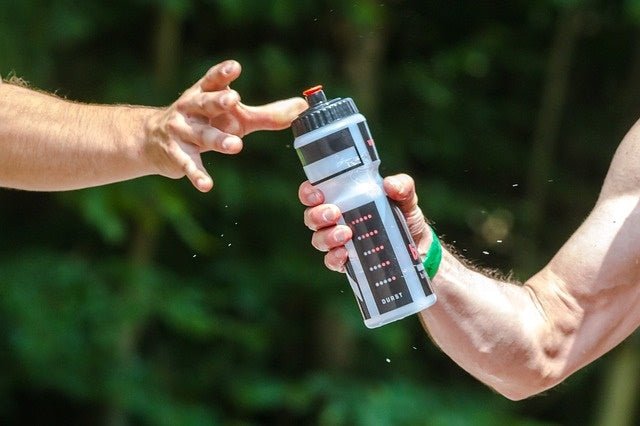
Overhydration: Too Much of a Good Thing
By Dan DeBaunShare
So in last week's article we covered why water is essential for maintaining good health, but contrary to conventional wisdom, like all good things, when consumed in excess water can in fact be bad for you.
While most people are aware of the risks associated with dehydration, the same cannot be said about overhydration. Athletes are particularly vulnerable to the health risks associated with overhydrating, as they are most likely to drink excessive amounts of water to replenish fluids lost while exercising in their efforts to prevent dehydration.
According to Mitchell Rosner, a kidney specialist at the University of Virginia School of Medicine, consuming excessive amounts of water or sports energy drinks can cause exercise-associated hyponatremia (EAH) -- a condition that occurs as a result of the body having too much water in relation to the level of salt present. When the body's blood salt levels drop to dangerously low levels it can result in neurological disorders that can prove fatal.
In the past endurance athletes were most susceptible to the effects of EAH, but doctors are now treating athletes from a much wider variety of sport disciplines. This has spurred the introduction of new guidelines for hydrating during sporting activities, which were recently published in the Clinical Journal of Sports Medicine by a panel of experts from 4 countries, chaired by Rosner.
"We have documented at least 14 deaths [from EAH] since 1981, including two deaths last summer in young athletes playing football," said Rosner. "The common feature in all cases is excessive water consumption during athletic events. This is driven by common misbeliefs that overhydration can improve performance and even prevent dehydration. It is worth noting that data demonstrates mild degrees of dehydration do not impair performance."
In order to prevent EAH, Rosner suggests that athletes listen to their bodies for cues on when to drink.
"We recommend using your thirst as a guide," he said. "If you drink when thirsty, you will not become hyponatremic and you will not suffer from significant dehydration."
These recommendations apply to both water and sports energy drinks, as drinking either in excess will result in hyponatremia. While sports drinks contain low levels of salts that may slightly reduce the risk, they still consist mainly of water.
According to Rosner, the initial symptoms can include headaches, nausea and fuzzy thinking, and more serious cases of EAH can result in severe confusion, seizures and coma. Should parents or sports coaches notice that a sportsman or woman is exhibiting signs of EAH, it is imperative that they take measures to prevent the athlete from drinking anymore fluids and seek medical assistance immediately.
For athletes that are showing mild symptoms of EAH, limiting fluid intake while keeping a close eye on their condition should see them recover within a couple of hours. However, if an athlete is showing more serious symptoms, it is advisable to seek urgent medical attention.
For athletes with mild symptoms, limiting fluids and closely monitoring their condition will help them recover within a few hours, Rosner said, but more severe symptoms such as confusion require urgent medical attention.
It appears that the saying 'everything in moderation' applies to water consumption too, as too much of a good thing can be bad for you.
Journal Reference:
Hew-Butler T, et al. Statement of the Third International Exercise-Associated Hyponatremia Consensus Development Conference, Carlsbad, California, 2015. Clin J Sport Med. 2015 Jul;25(4):303-20. doi: 10.1097/JSM.0000000000000221.I
-
Regular price $234.00 USDRegular priceUnit price / per
-
Regular price $327.00 USDRegular priceUnit price / per
-
Regular price From $367.00 USDRegular priceUnit price / per
-
Regular price From $408.00 USDRegular priceUnit price / per
-
Regular price From $451.00 USDRegular priceUnit price / per
-
Regular price From $478.00 USDRegular priceUnit price / per
-
Regular price $332.50 USDRegular priceUnit price / per
$350.00 USDSale price $332.50 USDSale

Dan DeBaun is the owner and operator of Big Berkey Water Filters. Prior to Berkey, Dan was an asset manager for a major telecommunications company. He graduated from Rutgers with an undergraduate degree in industrial engineering, followed by an MBA in finance from Rutgers as well. Dan enjoys biohacking, exercising, meditation, beach life, and spending time with family and friends.
~ The Owner of Big Berkey Water Filters
















